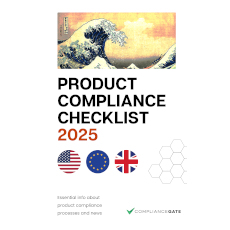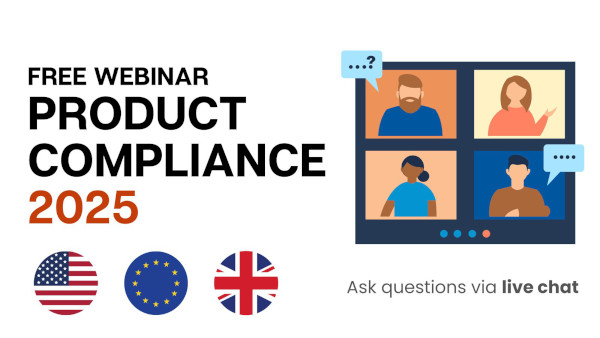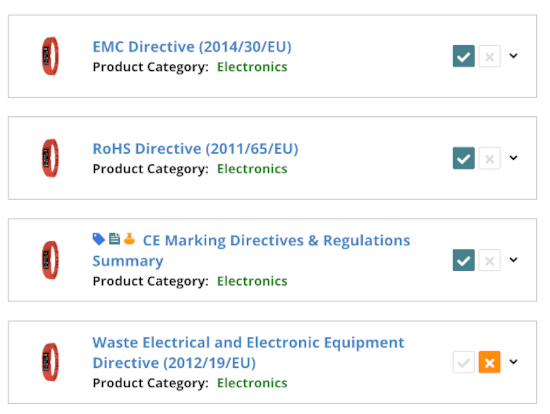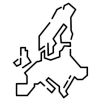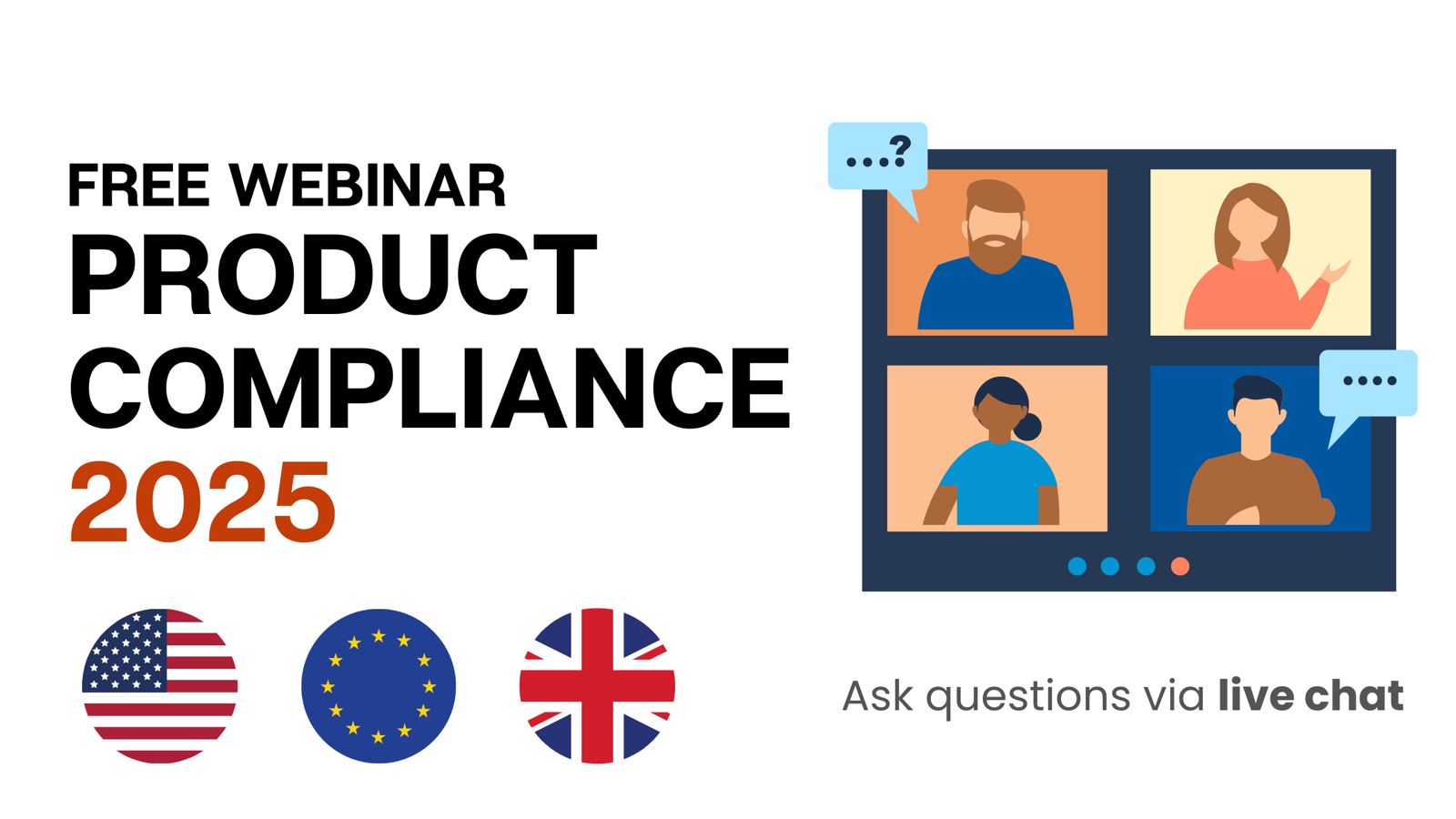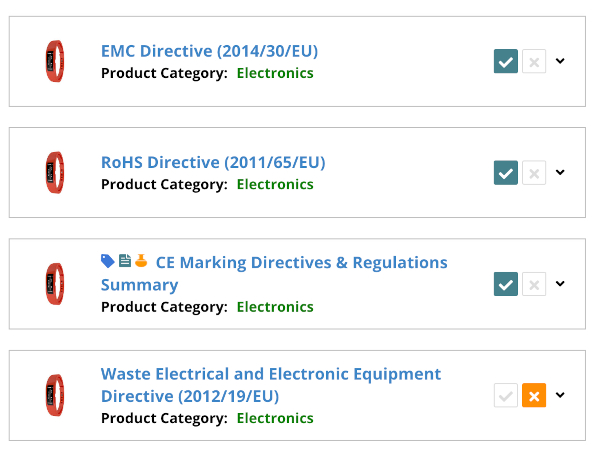
About to import, export or manufacture phone cases for the EU market? In this guide, we cover chemicals and heavy metals regulations, labeling, packaging, and other requirements.
Mentioned Products
- iPhone cases
- Android phone cases
- Leather cases
- Plastic cases
- Aluminum cases
- Wooden/bamboo cases
Content Overview

FREE CONSULTATION CALL (US, EU & UK)
- Request a free 30-minute call with Ivan Malloci to learn how we can help you with:
- Find product requirements
- Certification and labeling
- Lab testing
REACH
REACH, short for Registration, Evaluation, Authorisation, and Restriction of Chemicals, is a regulation enforced by the European Chemicals Agency (ECHA). REACH officially came into effect in 2007, aiming to restrict the concentrations of chemicals, heavy metals, and pollutants in all consumer products manufactured, imported and sold within the European Union countries.
Note that REACH is not applicable specifically to phone cases, but all materials used to make consumer products. As such, REACH is applicable to all types of phone cases (e.g. plastic, wood, aluminum, and leather).
Currently, there are more than restricted 1000 substances on the restricted list. Any product or material that contains too much of the restricted substances is in violation of the REACH regulations and thus subject to the prohibition in the EU market.
Below are some substances regulated by REACH:
- Lead
- Cadmium
- Mercury
- Nickel
- Azo colorants
Substances of Very High Concern (SVHC)
The European Chemicals Agency (ECHA) regularly updates the list of restricted substances to ensure that it can regulate any toxic chemicals recently found in products.
In order for your phone case products to comply with REACH, importers need to send their phone case product samples to third-party lab-testing companies for a product lab test.
Lab testing
As mentioned above, cell phone cases’ importers are liable to conduct relevant product lab tests before importing products to the EU market. It is the only way to determine whether the products are compliant with the EU regulations. As such, cooperating with a supplier that understands the implications of REACH is essential too.
Testing companies
Here are some companies offering REACH compliance testing:
- QIMA
- Bureau Veritas
- Intertek
- SGS
- TUV
You can find more companies offering REACH lab testing for phone cases and other consumer products in this guide.
Costs
Importers can get a comprehensive battery of tests according to the compliance regulations. Normally, it costs at least $200 per product depending on the quantities, materials, and colors of your phone case product.
Learn more
You can learn more about REACH lab testing in this guide.
Risks
Materials used to manufacture phone cases may contain excessive amounts of lead, cadmium and other restricted substances. Here are some phone case related REACH compliance risks importers and exporters should be aware of:
- Plastics containing excessive amounts of restricted chemicals
- Aluminum cases and/or plating containing excessive amounts of heavy metals
- Leather case coatings containing excessive amounts of restricted chemicals
- Bamboo case coatings/paints containing excessive amounts of chemicals
Keep in mind that many phone case suppliers based in Mainland China cannot guarantee that their materials are fully REACH compliant. It’s therefore essential to only work with phone case suppliers that can provide an extensive track record consisting of relevant chemicals and heavy metals test reports.
EN Standards
EN Standards are a battery of technical standards drafted and supervised by CEN (European Committee for Standardization), CENELEC (European Committee for Electrotechnical Standardization) and ETSI (European Telecommunications Standards Institute).
For the purpose of providing a foundation for product safety standard consensus within the EU member states, they serve as a standardization guideline for multiple parties including, manufacturers, users, consumers, and regulators.
EN Standards are generally voluntary to be followed unless required by a particular regulation/directive. Importers can easily find testing methods and procedures within the EN Standards list. It serves as an excellent reference point when it comes to verifying that your phone cases reach high quality and safety standards.
Note: Although EN Standards are often not mandatory compliance regulations for products imported to the EU market, the General Product Safety Directive (GPSD) still requires that all products imported and sold in the European Union are safe for the consumers. As such, importers should still follow relevant EN standards when designing and manufacturing products.
Examples of phone case product’s EN standards
- EN 1122, Plastics — Determination of cadmium – Wet decomposition method
- EN 15987, Leather — Terminology — Key definitions for the leather trade
You can search for additional EN standards for your product on shop.bsigroup.com.
EN testing
If you want to conduct an EN Standard compliance test for your phone case products, you can contact lab-testing companies such as SGS, Intertek, QMIA, Bureau Veritas.
Please note that most phone cases’ manufacturers in China or South-East Asian countries don’t have the equipment and expertise to carry out EN standards testing.
Leather Regulations
There is currently no EU-level framework for the labeling of leather products. Even so, leather industry and leather products are still under the supervision or influence of several regulations, concerning the use of chemical or hazardous substances within the leather products. Some of the EU members implement national leather labeling rules within the domestic scope.
The following regulations/directives are closely related to the leather industry/products in the EU:
- REACH, regulates a wide variety of chemical substances within the consumer products, including leather products.
- Regulation (EC) 1069/2009 and Commission Regulation (EU) 142/2011 on animal by-products and derived products not intended for human consumption.
If you want to know more about EU regulations on the leather industry and products, click here for more information.
Directive 94/62/EC: Packaging Regulations
Importers and exporters must be aware of the EU regulation for product packaging. The EU requires that all the product packaging shall be compliant with Directive 94/62/EC. Note that this regulation is also applicable to phone case packaging.
Please see the following items of the EU rules for packaging materials and waste.
Heavy Metals Restrictions
Directive 94/62/EC requires that materials, printing inks, and dyes contain acceptably low levels of heavy metals, most notably lead, mercury, and cadmium.
You will be required to provide accredited third-party lab-testing reports to the concerned authorities to proof your packaging’s’ compliance. Labs that perform packaging materials testing include Bureau Veritas, SGS, TUV, and QIMA.
Additional Packaging Information
1. The structure of the packaging and choice of materials should be thought to the collection, reuse, and recycling.
2. The packaging may also need to prominently display compliance marks and other requisite labels.
Amazon Europe Compliance Requirements
Amazon requires that all products sold in its platform meet all legally required EU product standards, regulations, certifications, and labeling requirements. Furthermore, the company is well-known to often enforce standards that are legally voluntary.
With this in mind, thoroughly study the product category requirements in the Amazon Seller Central for each product you are considering selling.
How does Amazon check product compliance?
Amazon might ask sellers to submit test reports, certificates, product photographs, and invoices of your phone case products before you plan to list new SKUs in the platform. Therefore, prepare all the relevant documentations beforehand for inspection.
What can happen if we sell non-compliant phone case products on Amazon?
Once Amazon finds that sellers are selling non-compliant phone case products in its platform, they might take immediate action by removing your products from the list and even freeze your account if necessary.


